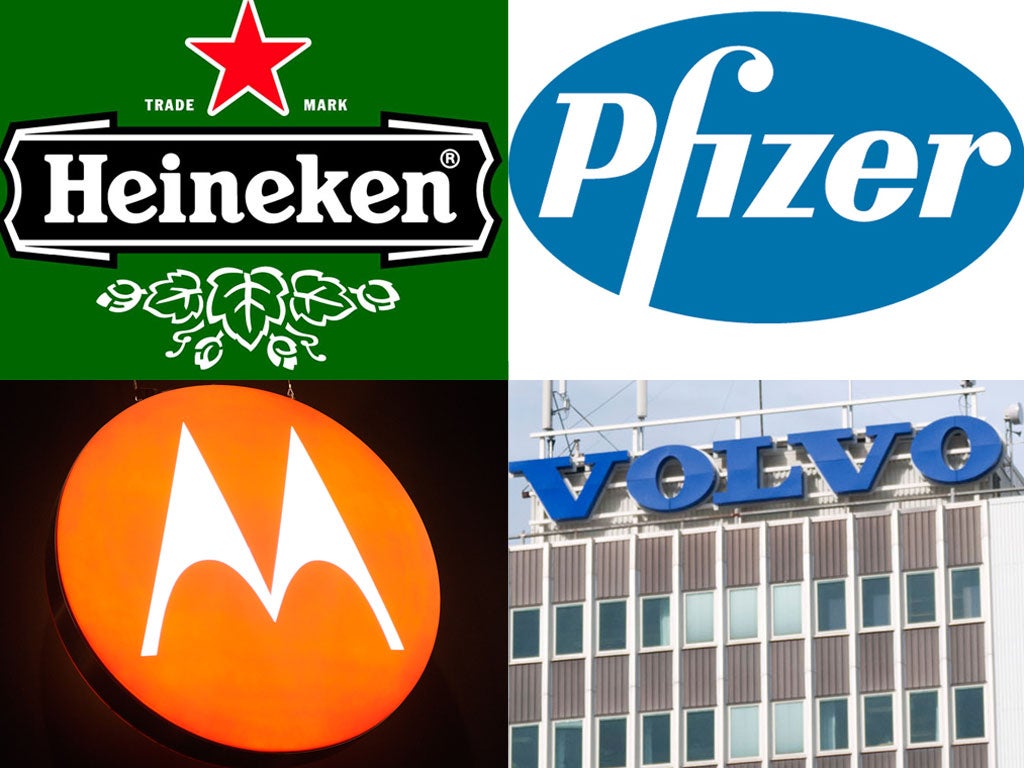Lobbyists' register to leave Parliament awash with cash from big business
The supposed crackdown on lobbying will do little to stem the flow of money from corporations seeking to buy political influence

The Government's proposed statutory register of lobbyists would cover the activities of less than five per cent of "paid for" lobbying directed at MPs and peers, an investigation has found.
Ministers plan to bring in legislation requiring all "those who undertake lobbying activities on behalf of a third party" to register as lobbyists. David Cameron has claimed the plan will "shine a light of transparency" on the political influence lobbyists enjoy.
But an analysis for The Independent by the non-profit organisation Full Fact, which examines the accuracy of public statistics, suggests the influence of the lobbying register will be minimal. According to its findings, it would cover only 4.8 per cent of money and services recorded as given to parliamentarians.
Full Fact conducted an analysis of the support given to all-party parliamentary groups – ad-hoc groupings of MPs with an interest in a particular subject – that have concerned transparency campaigners for years because of the "back-door access" they allegedly offer to MPs. It concluded that, because the definition of a "lobbyist" used in the Government's proposals is so narrow, only 31 of the 649 benefits declared by all-party groups would have met it. This excludes private individuals, companies and pressure groups only representing the interests of themselves or their members.
For example, Volvo's £17,192 donation to the parliamentary group on road safety would not require registration as lobbying, and neither would Motorola's £12,900 contribution to the information technology MPs' group.
Some other groups providing unspecified benefits to MPs' groups include BAE Systems, Lockheed Martin and Boeing Defence, all of whom contribute to the MPs' group on the armed forces, and Greene King, Heineken and Carlsberg, who contribute to the group on beer.
The Energy Industry Council supports the energy group while the health all-party groups gets tens of thousands of pounds a year from the drug companies Merck, Pfizer and AstraZeneca.
Full Fact highlighted three ways such groups can access parliamentarians – through supporting MPs' groups, sponsoring banquets and receptions in the Houses of Parliament and giving views to select committees.
It found that the three most frequent groups organising events in parliament were representatives of interest groups, private companies and trade associations and unions. The research also suggests that charities make up a significant part of the bodies involved in lobbying.
Non-profit organisations were the largest single group involved in parliamentary banqueting of the 23 different types of "lobbyists"' identified. They also accounted for almost a third of those providing donations or services to all-party groups, and were the second most frequent group to give evidence to select committees, behind individuals, but ahead of companies.
Richer charities are also significantly better represented in parliament than poorer ones. Whereas more than 10 per cent of charities with annual incomes above £10m gave their views to MPs on select committees in the 2006-07 session, less than 1 per cent of those with annual incomes below £1m did likewise.
Owen Spottiswoode from Full Fact said its findings showed that greater transparency was necessary. "Lobbying is an important part of the legislative process that ensures that those affected by policy proposals are heard in parliament.
"However, it is important that lobbying is transparent and accurate, so the public can see decisions made by lawmakers are based on sound information. Currently this isn't the case."
He pointed out there was no requirement for information provided to MPs to be accurate or available for public scrutiny. For example, in the midst of last year's controversy about the proposed housing benefit cap, Ed Miliband told the Commons that in anticipation of the measure in London "councils are already block-booking bed & breakfasts."
Full Fact submitted Freedom of Information requests to all 32 local authorities in the capital and found that this wasn't true. The claim had been based upon incorrect evidence given by London Councils, a pressure group, to a select committee the day before.
Having noted the mistake however, there was no mechanism for correcting the claim. "To tackle this problem, the proposed register of lobbyists needs to be coupled with a statutory code of practice that ensures that information provided is well-sourced, accessible and accurate," Mr Spottiswoode said.
Lobby loopholes: escaping the register
Groups making contributions to all-party groups who will not require registration as lobbyists include:
BAE Systems, Lockheed Martin and Boeing Defence contribute to the MPs' group on the armed forces
Greene King, Heineken and Carlsberg contribute to the group on beer.
Volvo contributes to group on road safety
Motorola contributes to information technology group
Merck, Pfizer and AstraZeneca contribute to health all-party group
Join our commenting forum
Join thought-provoking conversations, follow other Independent readers and see their replies
Comments